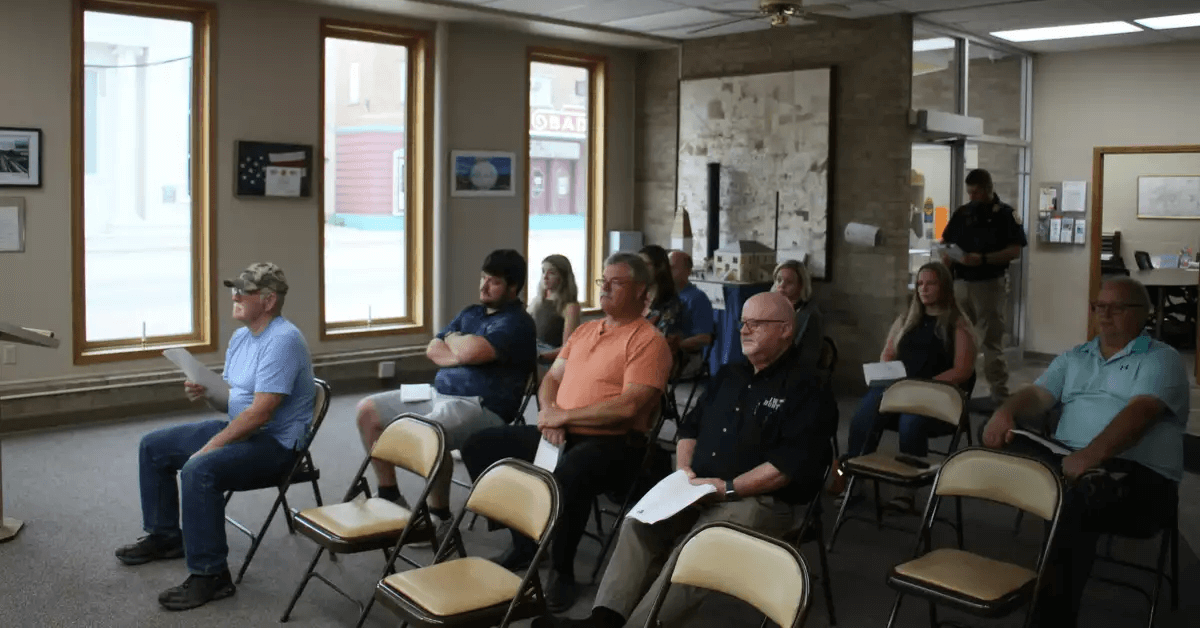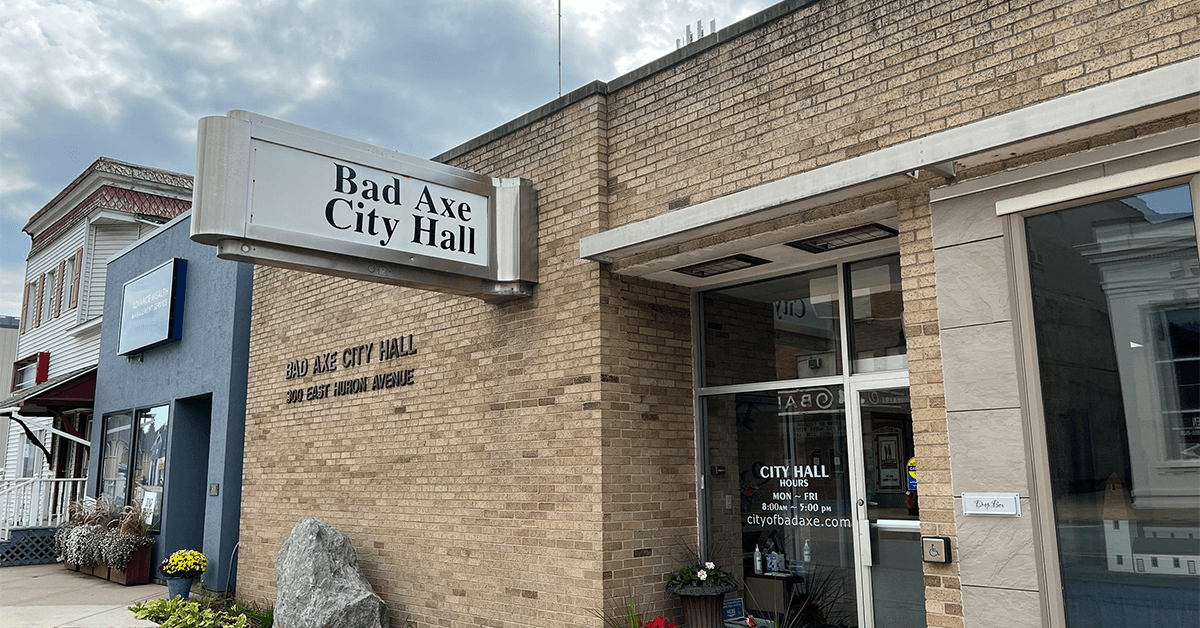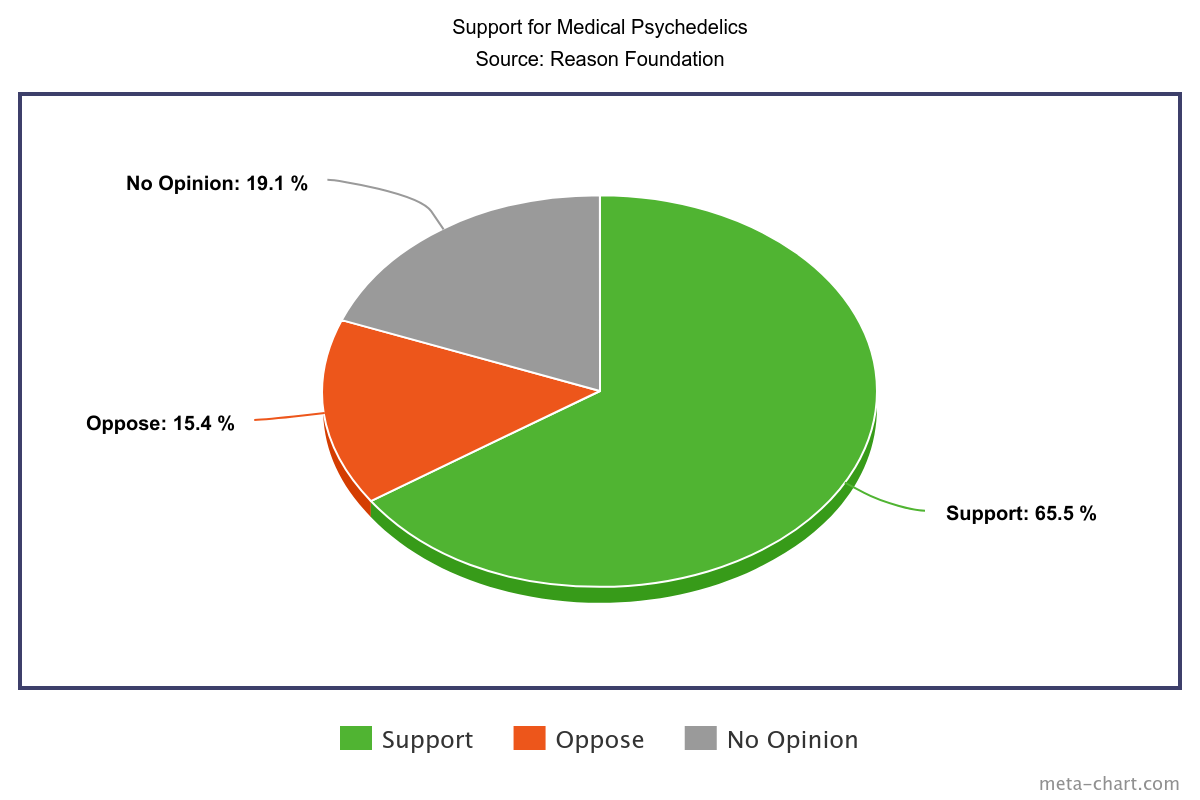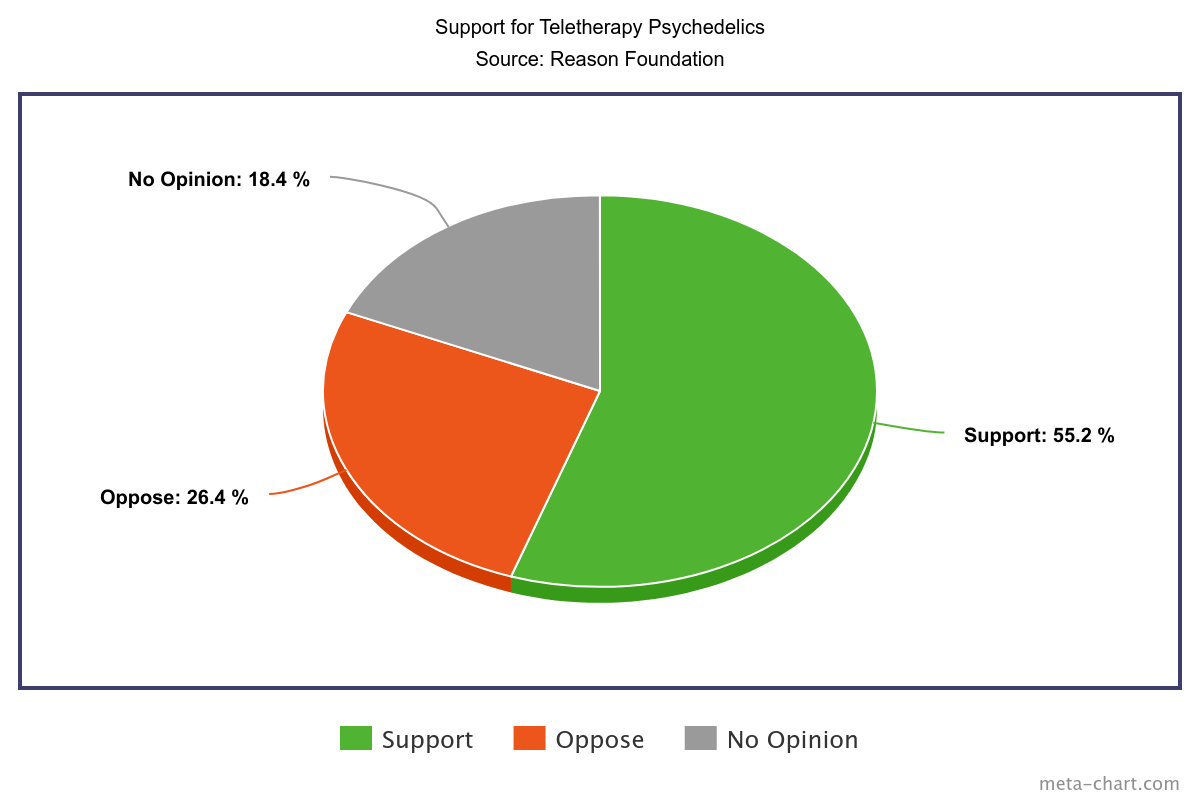Debate Intensifies Over Cannabis Billboard Proliferation in Detroit

Billboards advertising cannabis dispensaries have become a common sight along Michigan's highways and city streets. This influx of cannabis advertisements has prompted at least one Detroit elected official to propose significant changes.
Detroit City Councilwoman Angela Whitfield Calloway has instructed the city's Law Department to draft an ordinance that would either ban or restrict further cannabis advertising on billboards within the city limits.
Waterford Trustees to Discuss Extension for New Cannabis Provisioning Center

Waterford Township currently hosts three cannabis outlets and has approved licenses for three additional ones. Among these new enterprises is DNVK 1, which has encountered delays in opening its medical marijuana provisioning center at 2460 Dixie Highway.
Despite being granted an extension last October to ensure the site would be construction-ready by December 31st, 2023, and completed by this month, DNVK 1 has faced significant obstacles. The company has applied for a two-year extension for the demolition and construction phases, citing difficulties in gaining access to the property.
The property, known as the Sherwood Motel, has been functioning as an apartment building. DNVK 1's co-founder, Marvin Karana, explained in an appeal that the owner has struggled to lawfully and timely vacate and evict tenants from the premises.
Supporting DNVK 1's extension request, Sherwood Motel owner Mehangkumar Patel indicated that it would take a minimum of four months to issue 30-day notices to the tenants and proceed with the necessary District Court actions.
Waterford Township trustees are scheduled to discuss this issue further during a study session at 4 p.m. on Monday, June 24th, in Conference Room 3-2 of the township hall. This will be followed by a business meeting at 6 p.m. in the township hall auditorium located at 5200 Civic Center Drive, Waterford. The full agenda for the meeting is available online here.
Bad Axe Voters to Decide on Recreational Cannabis Ordinance in November

In a 4-3 decision, the Bad Axe City Council voted to place the marijuana ordinance on the November ballot during its June 17th meeting.
If approved by voters, the ordinance would allow up to four recreational cannabis facilities in Bad Axe, specifically zoned in commercial and industrial areas.
Mayor Kathleen Particka initiated the motion and voted in favor of placing it on the ballot. Council Members Steve Perez, Dan Glaza, and Nicholas Rochefort also supported the motion. Opposing votes came from Council Members Joel Harrison, Clark McKimmy, and Dave Rapson.
Bad Axe City Manager Rebecca Bachman emphasized that the November vote will ultimately determine the outcome of the ordinance.
During the public comment period, two residents voiced their opinions on the issue.
Resident Kim Rosenthal expressed support for the ballot initiative, stating, "I think we all can agree that it's gotten bigger than seven people making this decision. I highly recommend it be put on the ballot and let the people decide." Rosenthal has consistently advocated for putting the ordinance to a public vote, asserting that the decision should rest with the citizens of Bad Axe.
On the other hand, resident John Hunt, owner of J.W. Hunt located on M-19, opposed the ordinance. "We're very highly regulated and marijuana is a very touchy subject with the feds and the transportation industry," Hunt said. "I do have a concern. I realize in the state of Michigan it's legal, but federally it's not, and we're held under a different standard and it makes it very difficult to employ people."
Recreational cannabis was legalized in Michigan following the 2018 general election, where 56% of Michigan residents voted "yes" on Proposal 18-1. However, Huron County voters opposed the state proposal 8,261 to 5,479, with the city of Bad Axe voting against it by a narrow seven-vote margin, 541 to 534.
In early 2019, the city initially voted unanimously to ban cannabis facilities within city limits. In 2021, the council was approached by non-residents interested in establishing such facilities in Bad Axe, but the council voted down the discussions 4-2. Subsequently, the city authorized the Bad Axe Police Department to research ordinances from other municipalities.
The city eventually approved starting the ordinance process to allow recreational cannabis facilities in November 2023.
Key Issues Highlighted at June 13th Michigan Cannabis Regulatory Meeting

At the recent Michigan Cannabis Regulatory Agency (CRA) public meeting on June 13th, several significant developments and concerns were discussed. These range from budget approvals and enforcement measures to public comments on various issues affecting the cannabis industry.
[youtube=tAVqFc9afUI]
Budget Approvals and Laboratory Developments
Michigan's House, Senate, and Governor's office have largely agreed to the CRA's budget requests. A notable development includes the establishment of a reference laboratory, which will fall under CRA authority. This lab will play a critical role in enforcement cases, lab testing audits, and the creation of better standards and practices within the cannabis industry.
Sales Trends and Caregiver Data
The meeting highlighted contrasting sales trends in the cannabis market. Recreational sales have reached an all-time high over the past three months, while medical cannabis sales are at their lowest levels historically. The state currently has 7,700 registered caregivers.
Enforcement and Inspections
The CRA has bolstered its enforcement capabilities with 15 full-time agents who manage 150-200 complaints monthly. Between March and May, the agency conducted 956 inspections across 748 businesses. Additionally, there are 239 active social equity license operators in the state.
Public Comments: Key Issues and Concerns
The public comment section of the meeting featured a diverse array of viewpoints from industry stakeholders and community members:
-
Aspergillus Testing: Josh Smith, representing Therapeutic Health Choice, argued against mandatory Aspergillus testing for recreational cannabis, referencing his experience in Oregon. He contended that while medical cannabis might benefit from such testing, recreational cannabis does not require it due to naturally occurring spore levels in the environment.
-
Transportation and Compliance: Lindsay Fen, representing Emerald Secure Transportation, raised concerns about arbitrary time limits and rejections, which could potentially disrupt their operations.
-
Fines and Enforcement: Eric Colandrea, counsel for LaHaze Grow in Cheboygan, expressed frustration over a $6,000 fine for failing to test employee samples, highlighting the financial strain such fines impose on smaller businesses.
-
Organic Standards: A caregiver named Theo Gantos advocated for certified organic standards for cannabis, suggesting that Michigan could lead in this area under CRA guidance.
-
Market and Enforcement Issues: William McKenzie, CEO of Heritage Farms, discussed market cycles and the impact of out-of-state conversion oil on prices. He claimed that a significant portion of the market is affected by illicit oil and called for stronger enforcement measures.
-
Conversion Oils and Safety: Several commenters, including representatives from DSP Machine, a cannabis attorney named Nicholas Galindez, and Josh Swaider from Infinite Analysis Labs, emphasized the dangers of conversion oils. They noted that these oils, often produced out-of-state, compromise consumer safety and called for stricter enforcement and testing.
-
Local Government Corruption: Liz Bennett from Penn Township accused local officials of corruption in the cannabis industry, suggesting that the state should oversee the collection of taxes and license fees to prevent malfeasance.
-
License Fees: A small-time operator from Northern Michigan, Kelly Young, requested a reduction in renewal fees, criticizing the state for enabling larger out-of-state investors to dominate the market at the expense of small local operators.
-
Testing and Fraud: Marco Troami, a consultant specializing in cannabis lab setups, highlighted the issue of hemp conversion oils and testing fraud. He advocated for the development of tests to distinguish genuine cannabis oil from synthetic compounds and suggested implementing a secret shopper program to audit lab results and restore confidence in the regulatory system.
Looking Forward
The meeting underscored the complexity of managing Michigan's growing cannabis industry. From improving lab standards and enforcement to addressing market dynamics and ensuring safety, the CRA faces numerous challenges. However, the collaborative efforts between state authorities and industry stakeholders aim to create a more robust and reliable cannabis market in Michigan.
Public Debate Intensifies Over Proposed Bad Axe Cannabis Ordinance

Since Michigan's 2018 ballot initiative legalized recreational cannabis, the possibility of dispensaries opening in Bad Axe has been a topic of ongoing discussion. Recently, this issue reached a pivotal point with the drafting of a proposed ordinance.
The proposed ordinance has already undergone two public hearings with the Bad Axe City Council and the Bad Axe Planning Commission, awaiting a final vote.
Though the ordinance was not on the June 3rd city council meeting agenda, it was a focal point during the public comment segment.
Resident Kim Rosenthal voiced a common sentiment: "I think we've all heard the pros and cons on the marijuana ordinance. I think we are at the point where you should consider putting it on the ballot. Either way, people are going to be upset if you guys make the decision. I think the people in Bad Axe should make up their mind whether they want it or not."
Luke Deming, a vocal opponent from nearby Sheridan Township, reiterated his stance. "We need to look at the people, not the dollar amount. If you guys plan on trying to pass it, I would try to encourage the people of the city to write a referendum to force you guys on the ballot. I suggest you guys put it out for the people, otherwise, we will have to file a referendum and collect signatures to get it on the ballot."
Despite not being a Bad Axe resident and thus unable to sign a petition, Deming emphasized the importance of local residents having a say in the matter.
Concerns about the proposed dispensary also came from educators and religious leaders. Former educator Tim Laity and Faithway Church pastor Mike Beeler, both Bad Axe residents, expressed their opposition.
"I'm here to add my voice to those who are opposed to the idea of having a marijuana dispensary," Laity stated, citing issues with cannabis edibles among students as a significant concern. "As a former educator myself and someone who raised a couple of kids in this community, I would very strongly be opposed to the idea of a marijuana dispensary in this town."
Pastor Beeler echoed these sentiments, focusing on community and family values. "Everything about the business I'm in is about caring for people. We all understand that pot usage is legal and is coming into Bad Axe. It's available. We're not wanting a warehouse, we're not wanting a store and we're not wanting it in Bad Axe. I'm coming from the faith community and everything about my life has been about family. I raised three daughters here and I wouldn't want that. No one is struggling to get the product. I urge you to consider and re-evaluate the purpose for which this has become a priority in Bad Axe."
Members of the Bad Axe City Council appreciated the robust community involvement. Council Member Joel Harrison and Mayor Kathleen Particka both acknowledged the importance of public participation.
"I just want to say to the public thanks for coming to the last few meetings to share their opinion both good and bad," Harrison said. "I'm pretty sure everyone up here on the council loves hearing what you all think. It's really nice that the public is getting involved. We used to have meetings where all of the chairs in here were empty."
"It's amazing and I can't say it enough," Particka added. "It's nice to have people in the gallery."
Michigan Voters Show Growing Support for Psychedelic-Assisted Therapy

We understand this isn't directly related to cannabis, but given the evolving landscape of alternative therapies and their intersection with mental health treatment, we believe this topic is highly relevant to our readers. Exploring the legalization of psychedelic-assisted therapy offers valuable insights into broader trends in therapeutic practices and regulatory changes, much like the developments we've witnessed with cannabis.
Michigan is among several states considering legislation to legalize psychedelic-assisted therapy using compounds such as psilocybin. To understand Michigan voters' stance on this issue, the Reason Foundation conducted an online survey using platforms Amazon Turk and Pollfish. The majority of the 450 respondents, who identified as registered voters in Michigan, expressed support for professionally supervised psychedelic-assisted mental health treatment.
This support aligns with a broader national sentiment captured by the University of California, Berkeley researchers. Their 2023 hybrid online and phone poll, conducted by the UC Berkeley Center for the Science of Psychedelics, surveyed 1,500 registered voters and found that 61% support legalizing regulated therapeutic access to psychedelics, with 35% showing strong support.
Support for Regulated Psychedelic Market in Michigan
Following the example of Oregon and Colorado, which passed statewide initiatives to legalize supervised psychedelic services, several states, including California, Arizona, and New Jersey, have begun introducing similar legalization bills. In Michigan, the Reason Foundation's survey asked respondents about their support for a bill that would allow licensed mental health professionals to prescribe psychedelic substances to patients with diagnosable mental illnesses.
Results from the combined Amazon Turk and Pollfish platforms indicated that 65% of Michigan's registered voters support such legislation, while 15% opposed it, and 19% remained undecided.
The poll also provided respondents an opportunity to comment on their positions regarding psychedelic legalization. Many respondents not only were aware of psychedelic-assisted therapy but also shared personal experiences. This familiarity is consistent with a national survey by Columbia University, which suggests that about 5% of the public has used psychedelics in the past year.
One Michigan respondent on Amazon Turk noted, "I am aware of research showing how micro-dosing of psilocybin helps treat clinical depression and with some addictions. Psilocybin could be a more natural alternative to the heavy drugs used today to treat depression. The positives that could come with legalization greatly outnumber the negatives."
Another respondent shared a personal experience: "I myself have taken them and have seen first-hand how they are helpful when it comes to anxiety and depression. I fully believe if taken correctly, they can significantly reduce anxiety and the feelings of depression."

Mixed Views on At-Home Use of Psychedelics with Teletherapy
The Reason Foundation's survey also explored the possibility of allowing psychedelics to be prescribed for at-home use under professional supervision, similar to regulations for medical cannabis in some states. The question posed was whether respondents supported a state bill that would permit licensed mental health professionals to prescribe psychedelics for at-home use, provided patients were educated on safe use and had regular check-ins with a mental health professional.
A slight majority of 55% of Michigan respondents supported this idea, 26% opposed it, and 19% said they lacked sufficient information to form an opinion.
One respondent expressed cautious support for supervised at-home use: "If they are being monitored, I think it is the best way, then they can not only make sure it is working but to make sure they are not abusing it."

Methodology and Potential Bias in Polling
The survey methodology included responses from two online polling sources: Amazon Turk and Pollfish. A total of 450 responses were collected—322 from Pollfish and 138 from Amazon Turk. Respondents were provided with a brief background on the issue before answering the survey questions. This background highlighted the potential benefits of psilocybin for treating mental health conditions and noted ongoing clinical trials.
Public polling, especially online opt-in polls like those used in this survey, can face challenges such as nonresponse bias and demographic representativeness. Pew Research Center has noted that online polls can have a bias upwards of 11 points on some issues. To mitigate this, pollsters can re-weight samples to reflect the general population's demographics or use verification questions to ensure respondents' authenticity.
In this survey, respondents were asked to provide their registered voting zip code to limit false reporting. While there is a small chance of duplicate responses from merging the two platforms, the survey results still offer valuable insights into public opinion.
The University of California-Berkeley poll had a margin of error of 2.5%, while the Reason Foundation's survey estimated a margin of error of about +/- 3% using a bootstrap method. Given the potential bias and margin of error, there is a moderate likelihood that more than 50% of Michigan voters support professionally supervised psychedelic therapy. However, support for the at-home therapy option falls within the margin of error and potential bias.
Conclusion
As Michigan and other states consider the legalization of psychedelic-assisted therapy, public opinion appears to be shifting toward support for regulated, professional use of psychedelics. While there are concerns and mixed views about at-home use, the overall trend suggests growing acceptance of psychedelics as a legitimate treatment for mental health conditions. This evolving perspective mirrors the national trend, indicating a potential shift in future mental health treatment paradigms.


 Helpful Links
Helpful Links